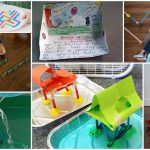Between classes, assignments, extracurriculars, and jobs, students face immense workloads. Pushing to meet relentless demands often spurs burnout – a state of emotional, mental, and physical exhaustion. Left unaddressed, burnout diminishes academic performance and wellbeing. Preventing and recovering from burnout is essential for students to thrive. This article explores techniques to combat study fatigue and cultivate sustainable practices.
Recognizing Burnout Symptoms
Watch for these common signs of academic burnout:
- Lack of motivation – Difficulty self-starting or completing basic tasks
- Diminished energy – Mental fogginess, constant fatigue
- Poor concentration – Wandering focus, forgetfulness
- Diminished output – Substandard, rushed work
- Isolation – Skipping activities, withdrawing from others
- Frustration/cynicism – Decreased patience, pessimism
- Perfectionism – Overworking to unattainable standards
“Tuning into symptoms helps students address burnout before it becomes severe,” notes psychologist Dr. Christina Maslach, burnout expert. Early action prevents downward spirals.
Evaluating Academic Load
Analyze demands and adjust unsustainable loads:
- Track all commitments – Note every assignment, activity, shift, practice, etc. Calculate total hours.
- Identify obligations vs. personal choices. Eliminate low-value activities.
- Discuss capacities openly with advisors. Reduce credits or roles if overloaded.
- Learn to say no – Decline added responsibilities that push past bandwidth.
- Advocate needs like better staffing or resource support to ease pressures.
“Assessments help students assert boundaries against overextension,” explains education researcher Dr. Denise Pope. Balance boosts resilience.
Taking Purposeful Breaks
Schedule legitimate breaks to recharge. Ideas include:
- Implement a digital sundown – Disconnect from devices in the evenings.
- Build in buffer days with lighter loads between intense periods.
- Take hourly movement breaks – walk, stretch, or meditate.
- Establish dedicated weekends protected from academics.
- Make time for hobbies, friends, and passions. Schedule fun!
“Short respites maintain energy and perspective,” says psychology professor Dr. Stuart Wolpert. Breaks renew motivation.
Creating Energy Boosting Routines
Daily rituals prevent depletion:
- Hydrate and fuel consistently – Don’t skip meals or subsist on junk food.
- Exercise – Even brief movement reenergizes and relieves stress.
- Limit exceeding caffeine – Avoid unhealthy dependency.
- Wake and sleep consistently, allowing 7-9 hours nightly.
- Find joy – Allot time for hobbies and laughter.
“Self-care routines combat the physical toll of academics,” explains counselor Natalie Spencer. They restore the spirit necessary to avoid burnout.
Tapping Social Support Systems
Isolation breeds burnout. Stay connected by:
- Venting frustrations to empathetic friends over venting on social media.
- Forming study groups to tackle challenging content together.
- Sharing stresses openly so others can check in and cheer progress.
- Spending time (in-person when possible) with positive people.
- Seeking counseling if feeling depressed, hopeless, or anxious.
“Community sustains us during difficult times,” affirms educator Michele Hernandez. Never go it alone.
Reframing Negative Self-Talk
Inner criticism fuels burnout. Challenge unhelpful thoughts:
- Perfectionism – “My worth isn’t defined by performance.”
- Overcommitting – “Setting boundaries doesn’t make me selfish.”
- Comparison – “Everyone faces challenges in their own way.”
- Hopelessness – “This feeling will pass if I rest and reset.”
- Isolation – “My friends want to help if I open up.”
“Adjust inner narratives from destructive to growth-oriented,” advises counselor Amy Morin. Words influence wellbeing.
Preventing Academic Integrity Burnout
Operating with integrity also combats exhaustion:
- Start assignments early to avoid desperate cheating. Set incremental goals.
- Take study breaks so concentration remains laser-focused. Avoid perfunctory skimming.
- Practice citing properly until it becomes habit, not hassle.
- Treat comprehension as the goal, not just grades. Learning energizes.
- Surround yourself with ethical peers who don’t cut corners.
“Burnout thrives in toxic environments. Cultivate communities of integrity,” says education ethicist Dr. Jason Stephens. Principled conduct reduces stress.
Recovering from Burnout
If already burned out, focus on restoration:
- Temporarily reduce activities to allow caught up rest.
- Reset sleep patterns – no all-nighters or sleeping-in.
- Eat nourishing foods to replenish. Reduce caffeine and sugar.
- Force leisure time, even if unmotivated. Do light activities you once enjoyed.
- Request extensions or accommodations if needed.
- Seek counseling to process root issues and develop coping strategies.
“Healing from burnout requires slowing down and rediscovering meaning,” says Mayo Clinic psychiatrist Dr. Daniel Hall-Flavin. Be patient with yourself through recovery.
By honoring limitations, students can avoid burnout and cultivate sustainable practices to excel for the long haul.

















